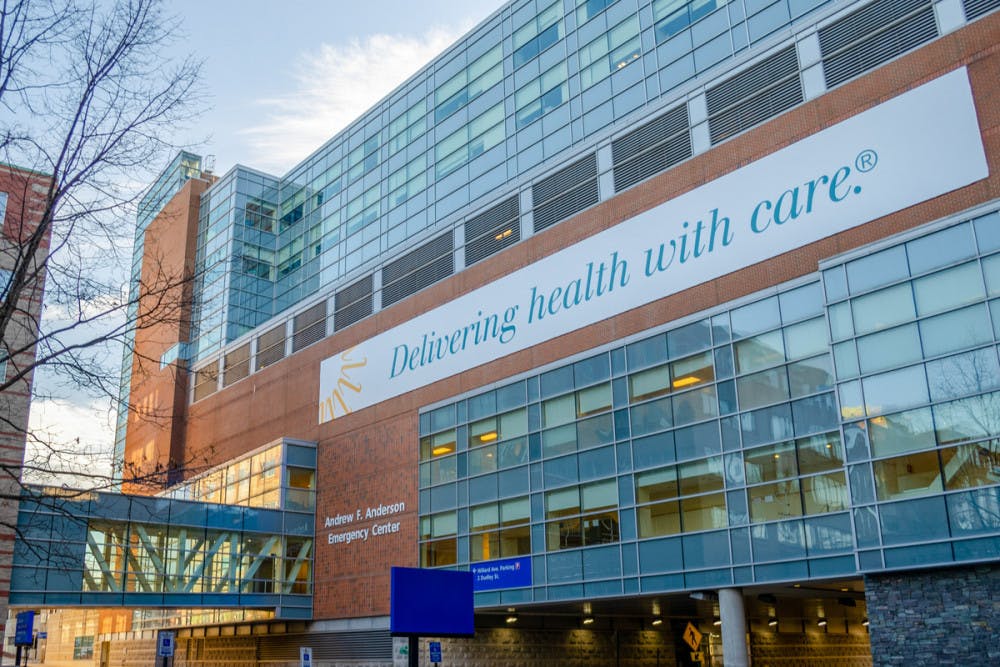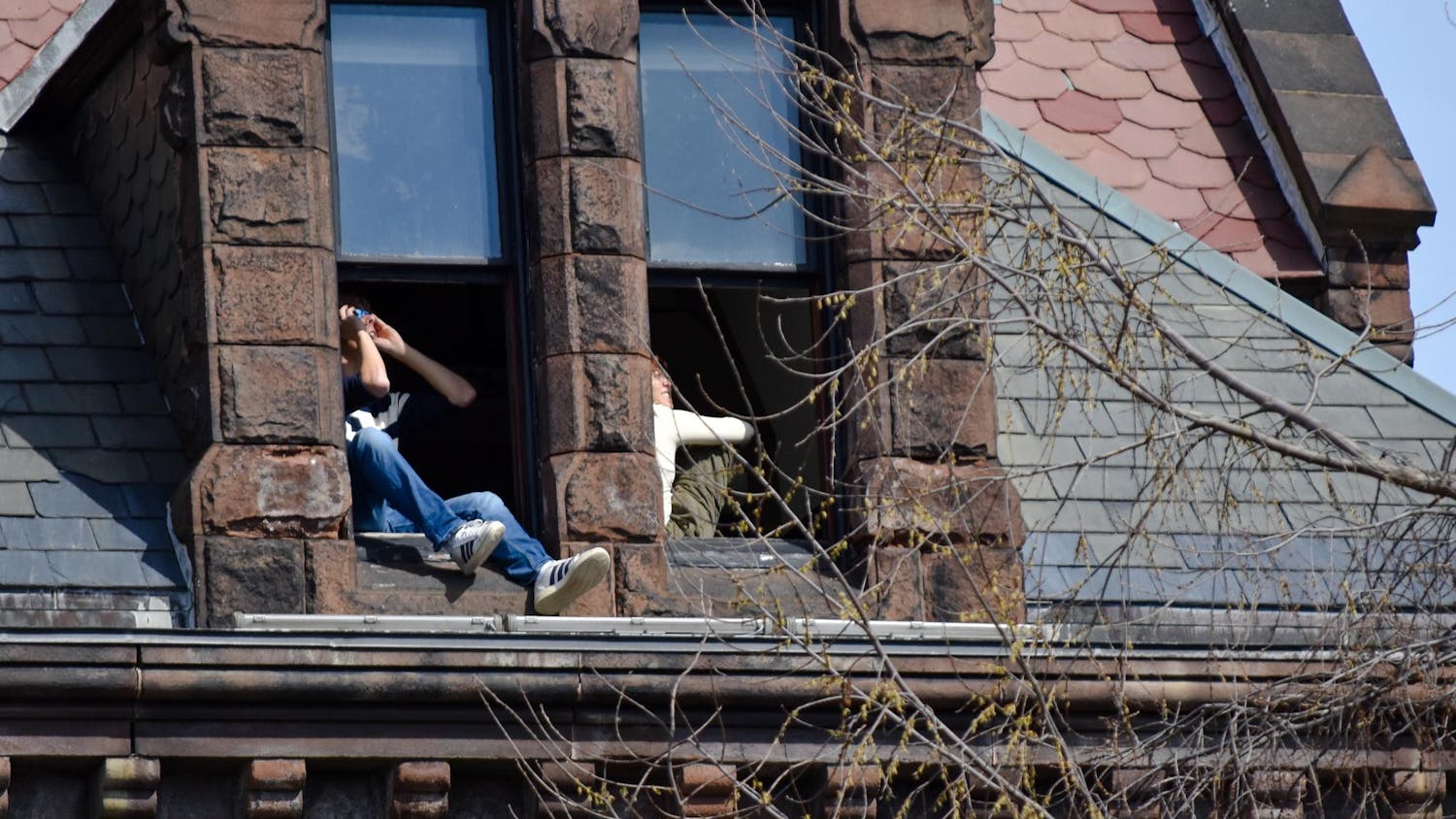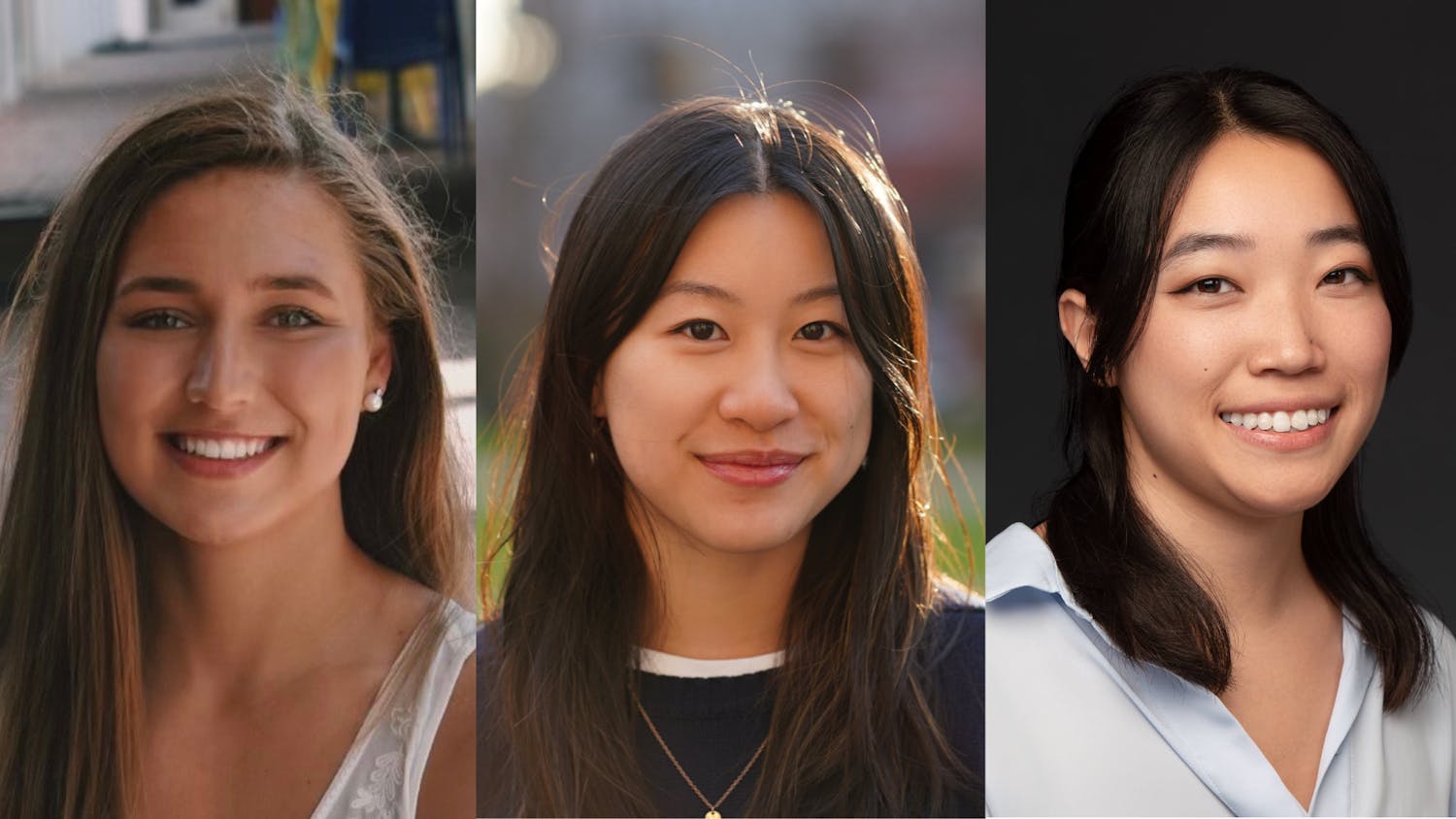The Lifespan health system received a shipment of COVID-19 vaccines from Pfizer-BioNTech and Moderna on Dec. 14 and Dec. 22, respectively. Two physicians who received both vaccine doses through the program spoke with The Herald about their experiences.
Lifespan-affiliated hospitals are holding vaccine clinics in support of their goal to vaccinate all of Lifespan’s employees, wrote Senior Public Relations Officer for Lifespan Richard Salit in an email to The Herald. The Lifespan health system includes Rhode Island Hospital, Hasbro Children’s Hospital, The Miriam Hospital, Newport Hospital and Bradley Hospital.
As hospitals across the country face staffing challenges and an increasing volume of patients because of the pandemic, it is important that healthcare workers remain healthy in order to serve patients in the Rhode Island community, wrote Salit. “The health of our workforce is always a priority, but it is even more critical now,” he added.
Rhode Island has administered over 66,000 COVID-19 vaccines so far as part of its Phase 1 distribution plan, The Herald previously reported. Following the Centers for Disease Control and Prevention and state guidelines, Lifespan had administered 12,750 first doses and 3,607 second doses of the Pfizer and Moderna vaccines by Jan. 13, Salit wrote.
Though Lifespan’s focus has been on vaccinating its employees, it has been able to vaccinate non-employees as well. Of the administered doses by Jan. 13, about 2,000 doses were given to community providers who are affiliated with the hospitals but not directly employed by Lifespan, such as those in respiratory therapy clinics.
Lifespan is also coordinating with the Rhode Island Department of Health to “assist in vaccinating high-risk populations” through community-based vaccination clinics and is planning on vaccinating “providers who are not affiliated with a hospital system,” Salit wrote.
Megan Ranney MPH’10, director of the Brown-Lifespan Center for Digital Health and practicing emergency physician at Miriam Hospital and Rhode Island Hospital, shared her experience with The Herald as one of the first people to receive the Pfizer-BioNTech vaccine in Rhode Island. “It was a very straightforward process,” she said. “The first dose was easy, and I really had no side effects. The soreness was no more than a regular flu shot.”
The next dose put Ranney “a little more under the weather,” she said. “My body definitely had an immune response to the second one: a low grade fever, body aches, a headache — but certainly far less than actually catching (COVID-19),” Ranney added.
The vaccine is known to produce minor side effects in some people after its administration. “A third to a half of people should expect to experience some fatigue and low-temperature fevers,” Ranney said. But “there’s nothing wrong or dangerous with that, and it’s okay to take some Tylenol to help with it.”
However, not everyone who receives the second dose of Pfizer’s COVID-19 vaccine will experience side effects. Christian Arbelaez, associate professor of emergency medicine at Alpert Medical School, did not have any notable side effects. “Personally, my experience was very simple and boring, which was good,” he said.
The possible side effects should not dissuade people from getting the Pfizer-BioNTech vaccine, according to Arbelaez. “The vaccines have been fully vetted through clinical trials,” he said. “They’ve gone through rigorous science. We have to trust the science.”
As the first in Rhode Island to receive the second dose of the Pfizer-BioNTech vaccine, Arbelaez looked forward to his vaccination. “I was not scared of the vaccine. I was excited and counting down the days until I could receive the second dose because I knew the first one hadn’t given me full protection,” he said.
Though Ranney and Arbelaez have received both doses of the Pfizer-BioNTech COVID-19 vaccine, they believe that vaccinated people should continue to follow CDC guidelines — such as social distancing and wearing a mask — to slow the spread of the virus.
“All we know is that the vaccine protects people from severe COVID, but it does not mean they cannot still spread it,” said Ranney. “Overall, (the vaccine) hasn’t changed much for me. It just makes me less scared about going to work.”

Jared is a Senior Staff Writer for Science and Research. He is a senior from Albuquerque, New Mexico studying physiology and biotechnology. Outside of The Herald he likes to fish, ride bikes and research the role of metals in human health and disease.





